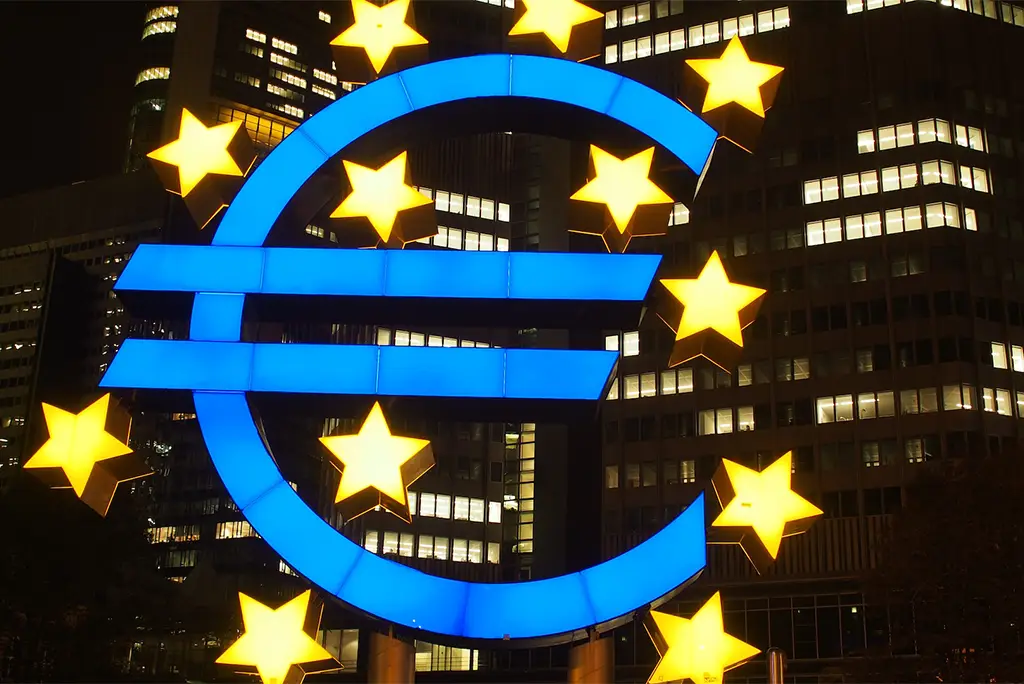The European Central Bank revealed a recent rise in interest rates by 0.25 percentage points, raising its primary rate to 3.75%.
The euro zone had experienced a full year of continuous interest rate increases, starting last July when the European Central Bank initiated its efforts to address the issue of high inflation. The latest rate hike marks the completion of this year-long sequence.
In its statement, the ECB acknowledged that inflation is decreasing, but it is anticipated to remain elevated for an extended period. The latest headline inflation figure indicated a decline to 5.5% in June from 6.1% in May, though it still significantly surpasses the ECB’s target of 2%. The upcoming releases of new inflation data for the euro zone are scheduled for next week.
Although market players anticipated the 25 basis point hike, there is still considerable anticipation regarding the ECB’s post-summer approach. Inflation has eased, but questions persist about whether the region’s monetary policy might lead to an economic recession.
ECB President’s Opinion
In her remarks, European Central Bank President Christine Lagarde expressed openness regarding future decisions, stating that the bank could either raise or maintain rates in September, but without certainty.
The ECB emphasized a data-dependent approach, indicating that its Governing Council will closely assess relevant information to determine the suitable extent and duration of any policy restrictions.
This cautious stance underscores the importance of monitoring economic indicators and adjusting strategies accordingly to effectively address inflation and overall economic conditions.
Anticipated Effects
Households and businesses in the eurozone are confronting a challenging scenario. They grapple with the combined impact of price spikes and higher interest rates. The surge in prices and borrowing costs adds to the financial burden. This adds complexity for individuals seeking loans to purchase homes and cars and companies aiming to invest in new equipment or infrastructure.
Increases in rates are part of an effort to curb inflation and reduce consumer spending, but they also exert pressure on the housing market and construction activity. The consequence of such economic measures can be a potential slowdown in economic growth. This is also evident in the region’s consecutive quarters of contraction.
Corporate loans at their lowest
The European Central Bank’s survey revealed a concerning development, with corporate loans in the euro zone reaching their lowest level ever during the period from mid-June to early July.
Adding to these worries, recent business activity data from major regional economies like Germany and France declined. These figures have heightened expectations that the euro area may risk slipping into recession this year.
Currency Dilution
Following the European Central Bank’s announcement, the euro experienced a decline against the U.S. dollar, dropping 0.3% to $1.105. Conversely, the Stoxx 600 index surged by 1.2%, and government bond yields declined.
This week, the International Monetary Fund (IMF) projected that the euro zone’s growth for this year would be around 0.9%. However, this forecast accounts for a potential recession in Germany, with the country’s GDP expected to contract by 0.3%.
These reactions suggest that market players anticipate additional rate increases in the eurozone, possibly as a response to the central bank’s decision to set the remuneration of minimum reserves to 0%.
Amid the prevailing economic concerns and uncertainties, these developments demonstrate the ECB’s efforts to address liquidity and monetary policy considerations in the eurozone.
The contrasting movements in currency, stocks, and bond yields demonstrate the complex dynamics in the financial markets, with investors closely analyzing policy signals and economic data to position themselves in an ever-changing landscape.
Economic Complexity Due to Russia-Ukraine War and Pandemic
In response to soaring inflation triggered by Russia’s invasion of Ukraine and supply chain disruptions amid the post-pandemic global economic recovery, central banks worldwide have taken measures to increase borrowing costs.
Thus, The European Central Bank (ECB) followed suit by raising its key rate. Similarly, the US Federal Reserve raised its rate for the 11th time in 17 months. Fed Chair Jerome Powell remains noncommittal about potential further rate hikes.
Notably, inflation in the US is currently at 3%, lower than in Europe. These rate adjustments demonstrate central banks’ efforts to mitigate inflationary pressures while navigating unique economic challenges in different regions.
